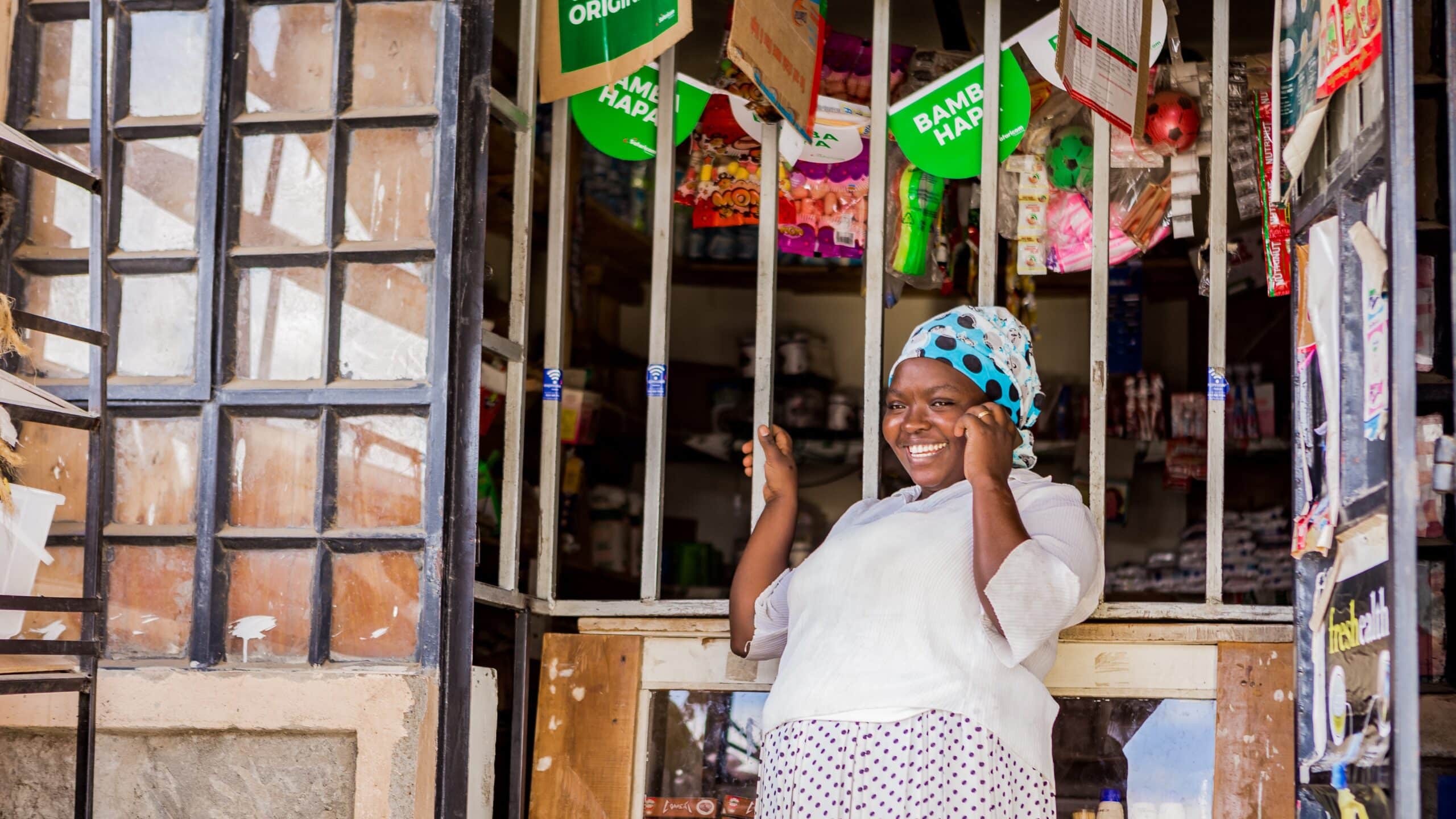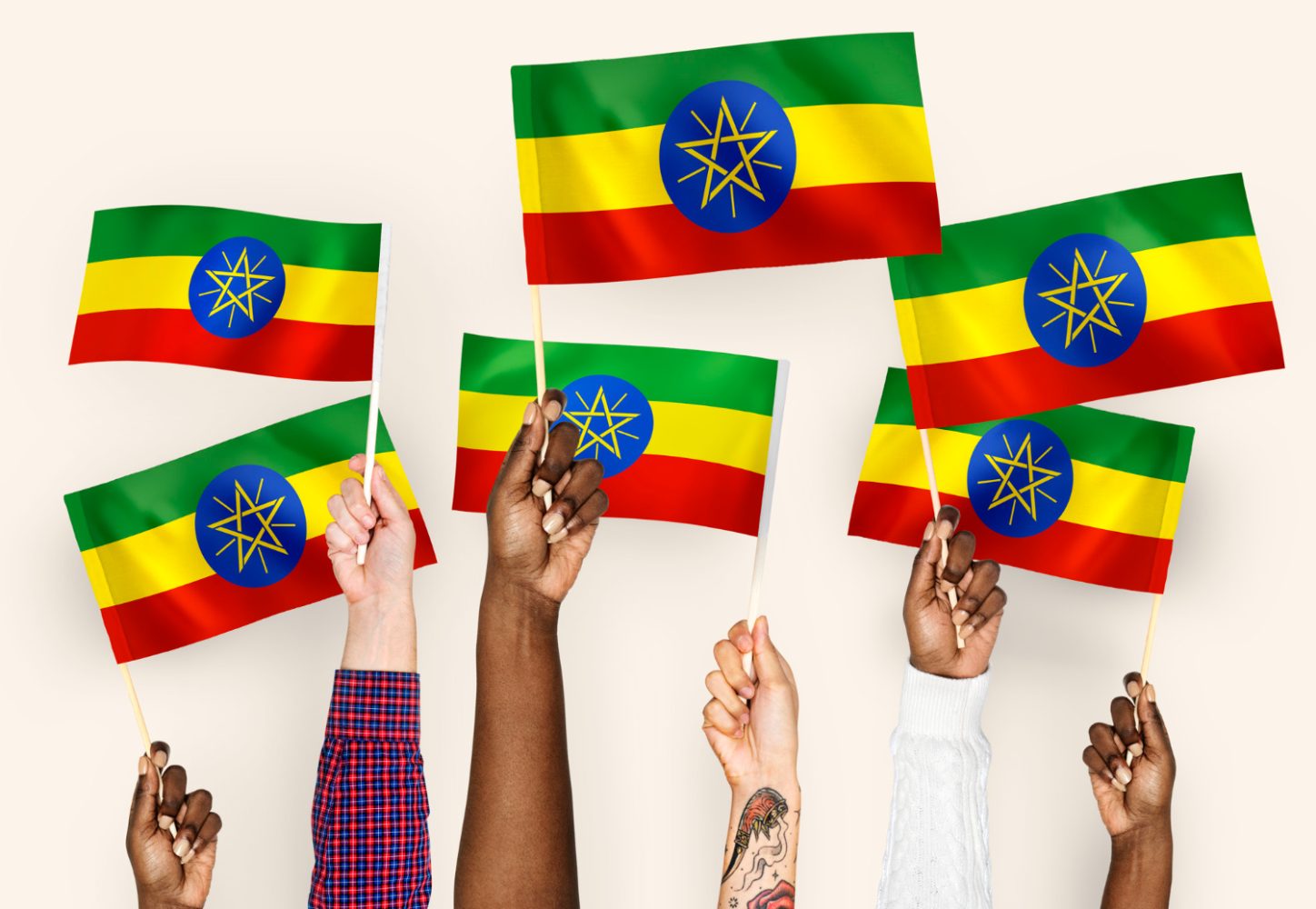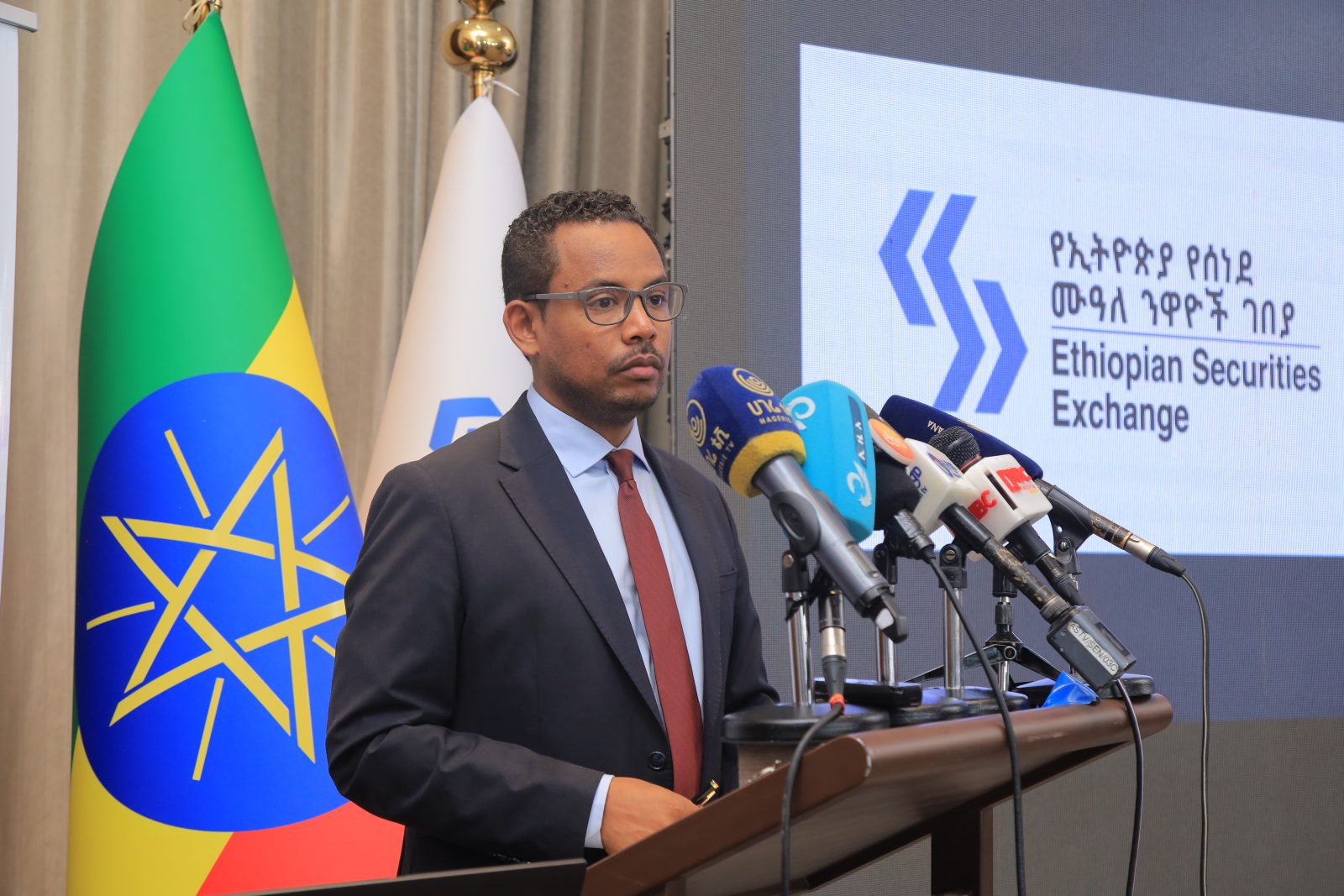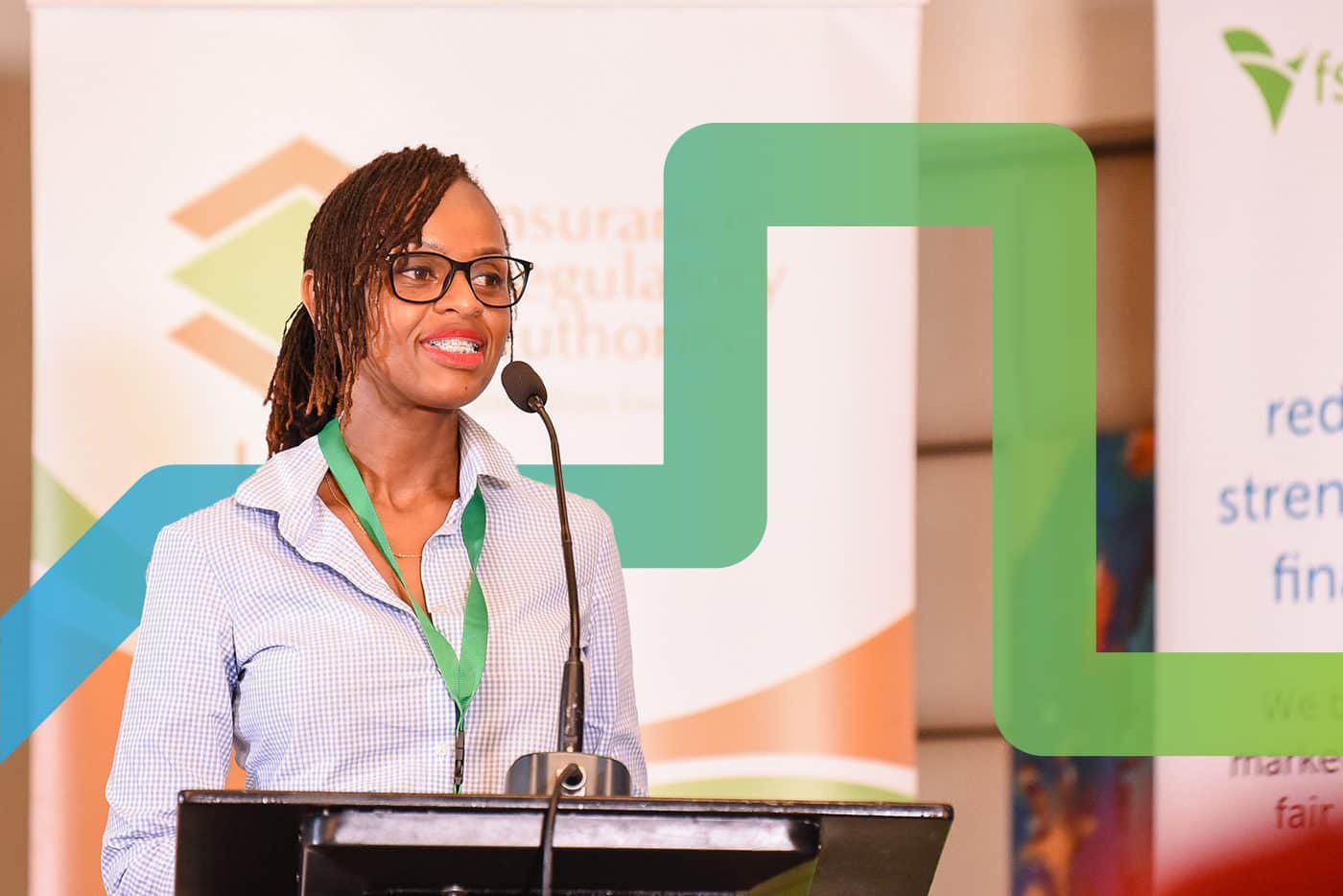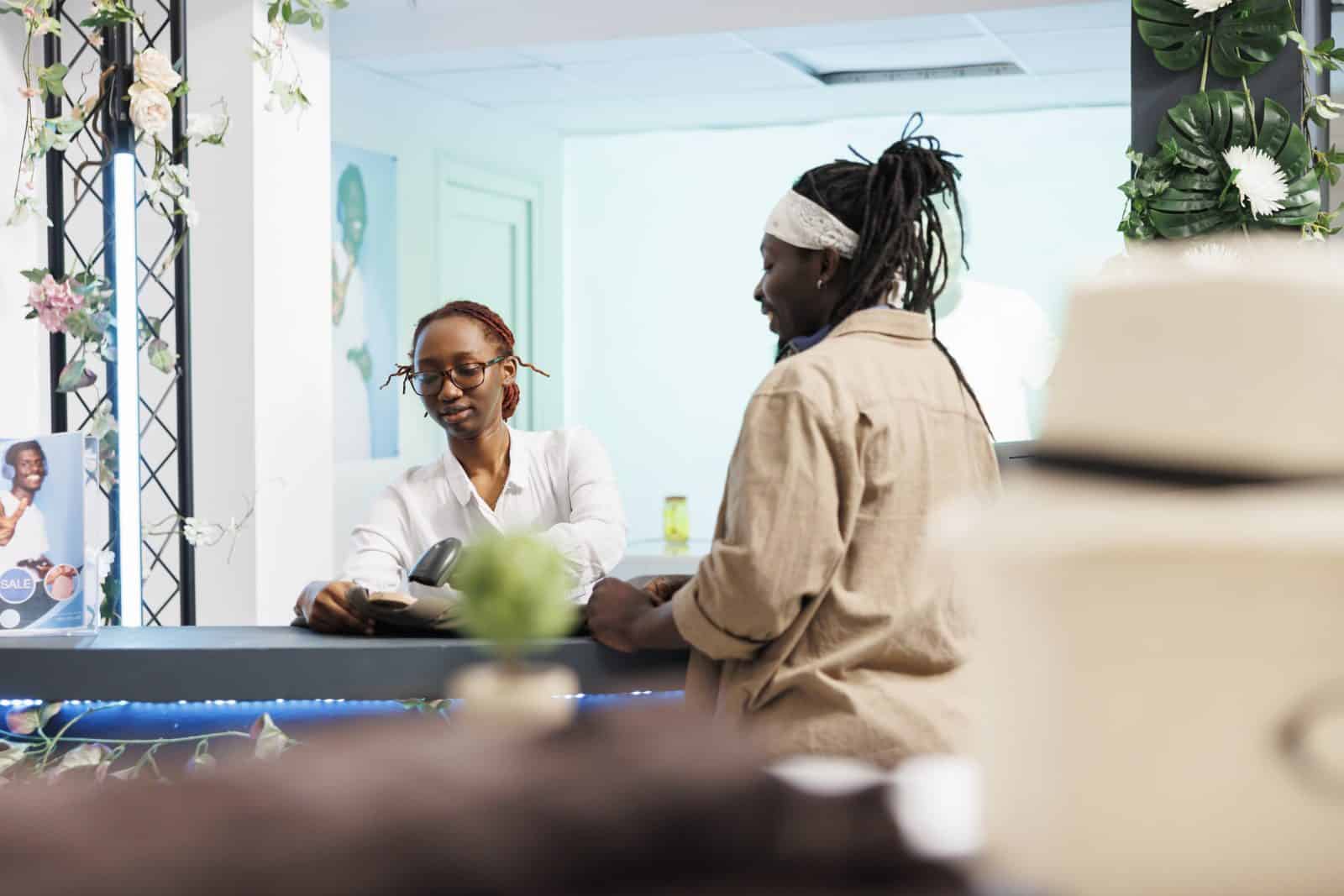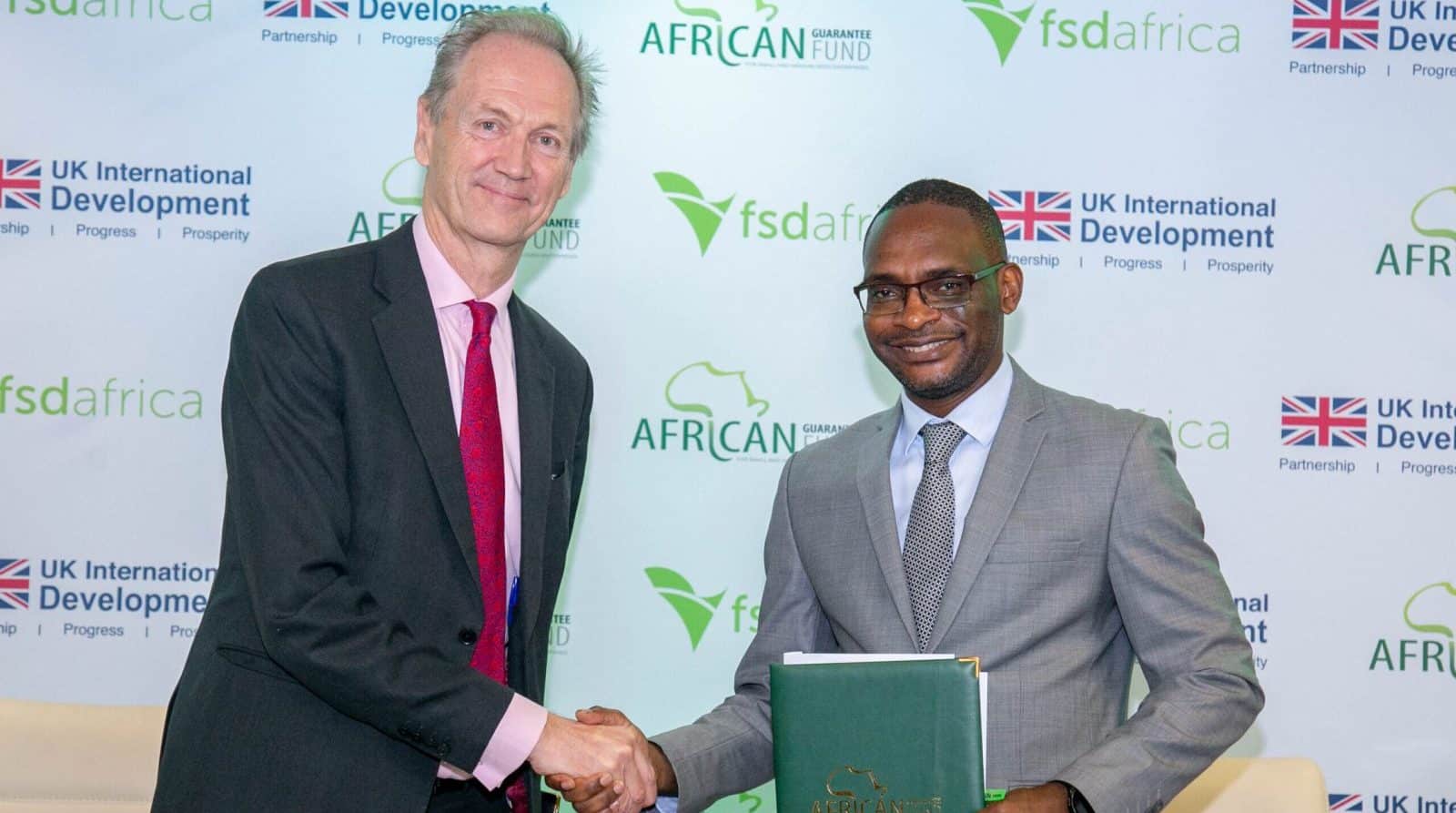Summary of discussion and outputs of the FSD Network Gender Learning Session.
Country: Ethiopia
The objective of the report is to assess whether the appropriate application of ‘new’ technologies could be leveraged by donors and other development agencies to increase formal remittance flows into Africa and/or reduce the cost of sending money home.
Fragile and conflict-affected states (FCAS) are of particular interest given the importance of remittances to livelihoods and post-conflict development, as well as the exacerbated challenges that are often faced in these jurisdictions.
By Michael Habte is ESX’s chief operating officer and Victor Nkiiri is a senior specialist – capital markets at FSD Africa
Ethiopia, Africa’s second most populous country, is among the fastest-growing economies in the world, with GDP growth projected at 6.5 per cent in 2025. The country has adopted a bold vision to achieve lower-middle-income country status by 2030, underpinned by sweeping economic reforms to transition from a state-controlled to a market-driven economy.
Among the new economic initiatives recently rolled out is a new securities exchange, the Ethiopian Securities Exchange, or ESX, planned for launch on January 10. For decades, Ethiopia’s financial an interbank trading platform. Simply put, banks could not effectively lend to one another, resulting in high interest rates to borrowers and significant inefficiencies in bank liquidity management. Such inefficiencies have constrained businesses, particularly the small and medium-sized enterprises which are the backbone of Ethiopia’s economy.
The new exchange is already addressing this challenge. An interbank trading platform which is part of the exchange is optimising liquidity and improving credit flow in the banking system. Since its pilot in late October, the platform has facilitated trades exceeding 135bn birr($1.1bn), demonstrating robust uptake by the banking sector.
Regulatory reforms
This milestone reflects the effectiveness of reforms such as the Interbank Money Market Directive issued by the National Bank of Ethiopia, which created the necessary regulatory framework. By enhancing price transparency and reducing transaction costs, the platform is already improving credit accessibility for businesses, enabling them to grow, innovate and drive economic activity.
The impact of the ESX extends far beyond the banking sector. A functional interbank market itself is the foundation for developing critical financial instruments such as treasury bills, corporate bonds and commercial papers. These instruments rely on liquid money markets for effective pricing and execution. With its state-of-the-art electronic trading platform that is integrated with the central securities depository, the ESX is well-positioned to facilitate the efficient issuance and trading of these instruments.
The exchange is also a critical enabler of economic diversification. By reducing borrowing costs and expanding access to finance, it empowers businesses to invest in new projects, expand operations and create jobs. These outcomes align with Ethiopia’s ambitions to achieve middle-income status and build a globally competitive economy.
Establishing the new securities exchange has been a challenging yet rewarding endeavour. To succeed it needed support from a wide spectrum of actors. The public-private partnership model facilitated this, tapping the power of collaboration to drive financial innovation. Ethiopian Investment Holdings, in partnership with FSDAfrica and the Ministry of Finance, worked hand in hand to develop the exchange, in an approach that prioritised market development initiatives that addressed local challenges while adopting global best practices. This ensures that the ESX is not only tailored to Ethiopia’sunique needs but also equipped to compete on the global stage.
Blueprint for innovation
As Ethiopia integrates into global financial markets, the ESX has the potential to position the country as a regional hub for capital market activity. This integration will strengthen Ethiopia’s appeal to foreign investors, unlocking new opportunities for economic growth. Beyond its immediate economic impact, the ESX also serves as a powerful symbol of Ethiopia’s ambition and potential. It exemplifies the transformative role that well-structured capital markets can play in fostering inclusive growth and economic resilience.
The new bourse is also anticipated to inspire other African nations to pursue similar reforms, unlocking the continent’s immense economic potential. Institutions like FSD Africa, which has been instrumental in supporting the ESX, are poised to replicate these lessons in countries that lack functional capital markets. Such efforts are vital for modernising Africa’s financial systems and driving sustainable development.
The launch of the ESX is not just a win for Ethiopia but a blueprint for capital market innovation across the continent.
The Ethiopian Securities Exchange (ESX) was officially launched today in a colorful event officiated by Prime Minister Dr. Abiy Ahmed. The exchange, established by the country’s sovereign wealth fund, Ethiopia Investment Holdings (EIH) in partnership with the Ministry of Finance and FSD Africa, marks a historic milestone in Ethiopia’s economic development.
Licensed by the Ethiopian Capital Market Authority in December 2024 to operate as a Securities Exchange and Over the Counter (OTC) market, ESX is set to revolutionise the nation’s capital markets. By providing equitable access to capital and enhancing liquidity, it aims to support private sector growth in Ethiopia, the second most populous country in Africa and one of the fastest growing economies globally, with projected GDP growth of 6.5 in 2025.
For decades Ethiopia’s financial sector has lacked a strong mechanism for equitable access to capital and liquidity for the private sector. In particular, the lack of an interbank trading platform has meant banks could not effectively lend to one another. This resulted in high interest rates to borrowers and significant inefficiencies in bank liquidity management which has in turn constrained businesses, particularly small and medium-sized enterprises (SMEs).
The new exchange is already addressing this challenge. An interbank trading platform, which is part of the exchange, is optimising liquidity and improving credit flow in the banking system. Since its pilot in late October 2024, the platform has facilitated trades exceeding ETB 135 billion (USD 1.1 billion), demonstrating robust uptake by the banking sector. By enhancing price transparency and reducing transaction costs, the platform is already improving credit accessibility for businesses, enabling them to grow, innovate, and drive economic activity.
ESX’s state-of-the-art multi-asset Electronic Trading Platform, which is integrated with a modern Central Securities Depository for post-trade settlement and clearing, will also support more efficient issuance and trading of financial instruments such as Equities, Treasury Bills and Bonds, Corporate Bonds, Commercial Papers, Repos, and Derivatives. This is expected to attract both domestic and international investors, further strengthening Ethiopia’s financial markets.
ESX CEO Tilahun Esmael Kassahun was optimistic that the new bourse would inject dynamism in the economy and deepen especially the debt market to the benefit of all actors in the ecosystem.
“We see the new securities exchange as a multi-faceted financial infrastructure, providing multiple markets and variety of products, catering for different types of issuers and investors. The Fixed income market will provide a platform to list and trade debt instruments including treasury bills and bonds, corporate bonds and Shariah compliant securities such as Sukuk Bonds.”
On his part, FSD Africa CEO Mark Napier underscored the role of modern and deep capital markets in accelerating the already impressive economic growth momentum of Ethiopia.
“The launch of the ESX is a true game-changer for the country. As an organization running development finance programmes in well over thirty African countries, we know only too well the impact well-functioning and modern capital markets can have in catalyzing economic growth. We are proud to have played a role in the development of this exchange, that will undoubtedly spur equity, fixed income and other innovative financial instruments,” noted Mark.
The launch of ESX follows significant economic reforms in Ethiopia over the past year, including floating the national currency, the Birr, opening the banking sector to foreign competition, and advancing capital market development. The exchange is poised to become a vital platform for raising capital, trading securities, and driving economic transformation.
Ever wondered what policemen, electoral commissions, regulatory bodies and parents have in common? You guessed it, they enforce norms in the spheres of their influence, a crucial role I deeply respect from my almost nine years as a staff member at a financial sector regulator. I will explain why.
Regulation is an art, not a science
Enforcing norms and legal rules in any sector is about striking the perfect balance. Overregulation can stifle innovation, while insufficient regulation can encourage malpractice. My previous experience at the Capital Markets Authority, Kenya involved gatekeeping roles similar to those of an immigration officer, ensuring only qualified participants entered the market. I was also involved in the development process for various pieces of capital market and broader financial sector legislation. This practice highlighted the artful nature of regulation – balancing enforcement with facilitation to foster market integrity and trust.
Challenges in African markets
Unlike developed markets, capital market regulators in Africa have the dual mandate of regulation and development. Developing these markets requires specialised skills and significant resources in human, financial and IT capacities. This is something that regulators understand very well – and it falls on all African governments and policymakers to appreciate this as well. Reason being, capital markets are built on trust – market players must have confidence in the way the market is run, giving credence to how it operates. Effective market regulation hinges on the ability to detect and respond swiftly to fraud and misconduct. It requires strong regulatory frameworks and the right tools. Specialised skills are also required. These cost a lot but are necessary for market confidence and functionality.
The benefits of well-regulated markets
When markets are well run, everyone benefits, from issuers seeking capital to investors looking for returns. Where markets function optimally, they mobilise long-term capital in local currency to power the real economy. For example, enabling a water company to raise USD 20m for water infrastructure maintenance and water conservation efforts in Tanzania or mobilising USD 95m to finance a green mobility project in Morocco. This showcases successful capital mobilisation for significant projects and the immense opportunity to replicate it.
The broader context
While regulation is important, it is not the sole factor. A stable political environment and conducive macroeconomic conditions contribute to a thriving capital market. I believe that African governments’ appreciation for not only the macro-level issues but also the opportunities for supporting capital market growth is always needed. By aligning government policies and incentives, like tax neutrality for specific securities and exemptions for green bonds enables more efficient capital-raising efforts by the private sector and encourages innovative financing solutions.
I believe African governments realise that reliance on public financing through external debt borrowing in hard currency is not an infinite pot. As of 2022, external debt in sub-Saharan Africa stood at USD 833 billion and this rises and falls depending on currency volatility. This type of financing is not sustainable, and it will not meet all the continent’s development needs. Alternative financing options include using capital markets or a mix of different types of capital and risk mitigation instruments like guarantees, insurance, and currency hedging mechanisms. This is the time to deploy this creative mix of financing solutions to fund sustainable development.
The role of FSD Africa
But back to my main point – capital market regulation and development are not a walk in the park. At FSD Africa, we have implemented several regulatory support initiatives – helping regulators strengthen their institutional capacity and build robust regulatory frameworks and long-term capital market development plans.
In March 2024, our efforts in supporting development of the capital market intermediaries licensing and monitoring legislation assisted the Ethiopian Capital Markets Authority in granting a license to its first investment advisor. This is a foundational step in the establishment of the capital market and mobilisation of capital. In addition, our work with various regulators and exchanges to design rules for sustainable bond issuances has promoted capital raising of approximately USD 1.2 billion across the continent. Such initiatives demonstrate the potential of regulated markets to mobilise sustainable finance and support Africa’s development.
An all-hands-on-deck approach is needed from the government and other market facilitators to support regulators in fulfilling their mandates. And these dual mandates were made for this time in history – for this time in the continent’s sustainable growth trajectory. I am sure as we support the implementation of regulators’ statutory mandates which the drafters of capital market legislation envisioned, our economies will be better for it.
The Ethiopian Securities Exchange (ESX) announced today the successful closing of its capital-raising exercise, surpassing by more than two-fold the amount of funds it sought to start its operations. Initiated in November 2023, with intensive efforts by its management and advisors and roadshows in Addis Ababa, Nairobi, and London, the Exchange witnessed dramatic interest by domestic and foreign commercial investors, obtaining a whopping ETB 1.51 billion (US$ 26.6 million), representing subscription of 240% of its initial target capital raise of ETB 631 million (US$ 11.07 million), with participation by a total of 48 domestic and foreign institutional investors across financial and non-financial sectors.
ESX was established in October 2023 through a pioneering public-private partnership with the Government of Ethiopia through the Ethiopian Investment Holdings (EIH), its strategic investment arm, as the founding shareholder, with a mandated total public shareholding of up to 25%, with the remaining 75% to be private shareholding.
At present, the list of investors includes foreign strategic investors, including FSD Africa, the Trade and Development Bank Group (TDB), Nigerian Exchange Group (NGX), along with 16 domestic private commercial banks, 12 private insurance companies, as well as 17 other private domestic investors. Public sector interests, jointly representing 25% of shareholding, include EIH and its subsidiaries such as Ethiotelecom and the Commercial Bank of Ethiopia, among others.
The overwhelming interest as investors rallied around the Exchange, up to the close of the capital raise period, signals the enthusiasm and confidence that the ESX heralds a major milestone in the country’s journey towards financial sector development and economic transformation. By facilitating the mobilisation of capital, enhancing transparency, and promoting corporate governance standards, ESX aims to unlock new avenues for investment, spur entrepreneurship, and catalyse sustainable development across various sectors of the economy.
“We are thrilled to have exceeded all our expectations in terms of the capital raise and are excited by the overwhelming confidence shown by investors in the long-term prospects of both ESX and Ethiopia’s capital markets more broadly,” said Tilahun Esmael Kassahun (Ph.D), CEO of the ESX, adding that “strategic foreign investments by TDB, FSD Africa, and NGX Group are particularly important in allowing the transfer of technical knowhow and best practices as well as other areas of long-term strategic value that we will explore.”
ESX also announced today other progress, including the release of its draft Exchange Rulebook for public consultation, the completion of the technical evaluation for the selection of its technology provider, a major milestone to operationalising the Exchange’s trading, and issuer and investor education plans in the coming months leading up the launch of this exciting development for the Ethiopian economy.
Addis Ababa, March 7th, 2024 – Today marks a significant milestone in Ethiopia’s journey towards fostering innovation and entrepreneurship in the insurance technology landscape. The inaugural BimaLab Ethiopia Demo Day, organized by FSD Ethiopia in collaboration with FSD Africa and the Bill and Melinda Gates Foundation, celebrates graduation of the transformative four-month journey for the cohort of 10 startups and 4 corporates.
Since its inception, the BimaLab Ethiopia program, implemented by FSD Ethiopia with funding from the Bill and Melinda Gates Foundation in cooperation with FSD Africa and the National Bank of Ethiopia, has driven innovation and positive change in the insurance sector.
The program provided participants with invaluable mentorship, training, and resources to develop and refine their innovative Insurtech solutions.
“Hosting the inaugural BimaLab Ethiopia Demo Day and graduation signifies a key milestone in our efforts to foster innovation and entrepreneurship in the insurance technology landscape.” says Abel Taddele, Financial Inclusion, Director. “The cohort’s innovative solutions hold potential to make a tangible impact and contribute to advancement and deepening of the Insurtech ecosystem in Ethiopia.”
Partnering with the Bill and Melinda Gates Foundation has further strengthened the program’s impact, fostering an environment conducive to innovation and entrepreneurship.
“We are proud to partner and celebrate the achievements of the inaugural BimaLab Ethiopia cohort” says Edom Tsegaye, Ethiopia Country Lead, Inclusive Financial Systems, Bill and Melinda Gates Foundation. “Their dedication exemplify the spirit of innovation that is driving positive change in Ethiopia.”
The National Bank of Ethiopia also played a pivotal role in supporting the program, recognizing the importance of fostering innovation in the insurance sector.
“The National Bank of Ethiopia congratulates the BimaLab Ethiopia cohort on their achievements and innovative solutions” says Belay Tullu, Director, Insurance Supervision Directorate, the National Bank of Ethiopia. “As the regulator, we are committed to providing a conducive policy environment that fosters innovation and encourages the development of innovative solutions in the insurance industry.”
FSD Africa’s longstanding commitment to driving innovation across Africa has been instrumental in supporting the BimaLab Ethiopia initiative.
“The BimaLab Ethiopia Demo and Graduation Day represents a significant milestone in our journey to catalyze innovation in the insurance sector,” says Elias Omondi, Principal, Innovation for Resilience, FSD Africa. “We eagerly anticipate witnessing the cohort’s transformative solutions and their potential to drive positive change not only in Ethiopia but also beyond its borders.”
The Graduation and Demo Day features presentations from the cohort members, showcasing their solutions to investors, industry experts, and stakeholders. The event includes panel discussions, keynote addresses, and networking opportunities, providing attendees with valuable insights and fostering collaboration within the Insurtech community.
“We are delighted to have been an implementing partner of the BimaLab Ethiopia program, working alongside FSD Ethiopia, FSD Africa, and the Bill and Melinda Gates Foundation. This initiative has been a catalyst for innovation and entrepreneurship in the insurance technology landscape of Ethiopia,” says Markos Lemma, cofounder and CEO, IceAddis.
One of the highlights of the Graduation and Demo Day is the announcement of the winners, who will receive cash prizes to further develop and scale their solutions. The winners are selected based on their innovation, impact, and potential for growth, with the aim of supporting their journey towards success.
“We are honoured to have been part of the implementation of the BimaLab Ethiopia program,” says Tellistic Technologies representative. “Over the past four months, we have witnessed the remarkable growth and development of the cohort, and we are excited to see their innovative solutions showcased at the Demo Day.”
The BimaLab Ethiopia Graduation and Demo truly lived to. Its promise of being a landmark event, bringing together stakeholders and thought leaders to celebrate innovation, entrepreneurship, to accelerate positive change in the Insurtech sector.
For media inquiries or further information, please contact:
Name: Samson Berhane
Title: Communications & Advocacy Specialist
Organization: FSD Africa
Email: samson@fsdafrica.org
Phone: +251937447258
About the National Bank of Ethiopia:
The National Bank of Ethiopia is the central bank of Ethiopia, responsible for formulating monetary policy, supervising financial institutions, including insurance firms, and maintaining price stability. The NBE plays a crucial role in the development and regulation of the financial sector in Ethiopia.
About FSD Ethiopia:
FSD Ethiopia is a non-profit organization that works to improve financial inclusion, deepen capital markets, and boost access to financial services in Ethiopia. FSD Ethiopia collaborates with various stakeholders to drive innovative solutions and create an enabling environment for inclusive finance in the country.
Please mention Tadpole’s organisation
The acclaimed and innovative Bimalab Africa Insurtech accelerator program by FSD Africa is now set to expand to cover a total of fifteen countries across the African continent from the initial ten countries covered in the 2023 program, following a US$ 600,000 support by Swiss Re Foundation.
Launched in Kenya by FSD Africa in 2020 and supported by the Swiss Re Foundation since 2023, the BimaLab Africa Insurtech Accelerator Program offers hands-on venture-building support to high-impact insurtech start-ups that improve the resilience of underserved and climate-vulnerable communities.
In this extension of the Foundation’s support through 2025, BimaLab will expand its footprint to accelerate 55 insurtechs in a total of 15 African countries. It will build strong innovation ecosystem by activating investors, capacity-building networks, and corporate institutions to unlock capital, attract talent and share knowledge about insurance solutions tailored to those communities’ needs.
BimaLab Africa addresses problems faced by vulnerable communities and businesses, it gives priority to enterprises that address challenges on climate change, health and gender as well as obstacles faced by micro, small and medium enterprises. Africa’s protection gap, or uninsured losses, for natural catastrophes was around 80% of the total economic losses they caused in 2022, up from 58% one year earlier. These figures highlight the severity and volatility of the region’s natural disasters as well as its lack of financial protection against them. BimaLab Africa will create an insurtech innovation ecosystem that supports the growth of insurtechs; reach underserved markets, communities and households.
“Insurance provides a crucial safety net when people experience threats like natural disasters, ill health or economic disruption. We are proud to scale our partnership with BimaLab Africa, an initiative we strongly believe in. Bimalab Africa supports the growth of insurtechs, their reach to underserved markets, communities and households. It creates an insurtech innovation ecosystem in Africa. ” said Stefan Huber Fux, Director of the Swiss Re Foundation.
Bimalab Africa program is a unique programme bringing together insurance innovators, technology partners, insurance firms, investors, and regulators to work in concert in unlocking industry bottlenecks in modernising insurance services. Previously Bimalab Africa has had chapters supporting insurtechs in Egypt, Ethiopia, Ghana, Kenya, Morocco, Nigeria, Rwanda, South Africa, Uganda, and Zimbabwe. Among the new countries where the programme seeks to spread wings to are Tanzania, Tunisia, Senegal, Zambia, Malawi, and Somalia.
FSD Africa Principal Innovation and Resilience and Bimalab Africa Programme Lead Elias Omondi says the impact of the programme has been phenomenal over the last four years in expanding the reach of the program and playing a catalytic role in innovation by developing products for vulnerable customers and attracting investors to insurtech startups.
“BimaLab Africa enables startups enjoy access to a structured learning environment, mentorship, funding connections and a network of like-minded entrepreneurs, financiers, tech companies and regulators that can help them grow their businesses. We have supported 63 startups since 2020 and facilitated development of 3 regulatory sandboxes. Furthermore, investors have supported ten ventures providing over US$10 million in funding and over 40 products developed have reached more than 3 million new customers reached” said Elias Omondi, Principal from FSD Africa.
Insurance penetration in Africa has been lagging compared to other parts of the globe at only 3% compared to the world average of 7%. Innovation and technology are expected to play a key role in addressing the challenge.
The African Guarantee Fund (AGF), a leader in promoting financing of Small and Medium-sized Enterprises (SMEs) across Africa and FSD Africa, a pioneering development agency committed to reshaping Africa’s long-term financial landscape, have today signed a strategic Cooperation Agreement aimed at propelling the growth of Green SMEs by providing critical financial support, technical assistance, and capacity building.
The Cooperation Agreement outlines a detailed framework collaboration between the organizations in boosting sustainable development in Africa. The main aspects of this partnership involve assisting in the development of financial products for institutions, offering partial credit guarantees for bonds and funds raised on behalf of SMEs, and conducting capacity-building events.
Furthermore, by providing financial support and fostering business growth, Green SMEs are expected to play a pivotal role in reducing CO2 emissions. This active contribution aligns with the overarching goal of preserving the environment and facilitates access to finance for business growth and empowering SMEs to generate and sustain employment opportunities, especially for youth and women.
Speaking during the agreement signing, Mark Napier, Chief Executive Officer of FSD Africa said: “This partnership represents an important milestone in our efforts to foster sustainable economic development in Africa. By leveraging the strengths of FSD Africa and the African Guarantee Fund, we will actively create a robust ecosystem that empowers Green SMEs. This collaborative effort aims at facilitating access to affordable long-term funds, thereby accelerating the transition towards a greener and more resilient economy.”
Jules Ngankam, AGF Group Chief Executive Officer said: “Fostering a green economic transformation in Africa is one of our key priorities. Through this partnership, AGF will provide financial institutions with bank fundraising guarantees to enable them access affordable funds aimed at facilitating loans to SMEs investing in low carbon and climate resilient businesses”.
Additionally, AGF will extend partial credit guarantees to lenders in a bid to enhance credit accessibility for Green SMEs, empowering them to flourish and make meaningful contributions to environmental conservation.
The two organisations will also provide technical assistance on green financing initiatives, which is critical in building the capacity of key stakeholders such as Governments, Financial Institutions, and Green SMEs.
Read original article
Catalyst Fund, a pre-seed VC and accelerator, backs nine African early-stage climate tech startups with a $1.8 million investment to bolster their impact and growth trajectory.
The nine startups benefiting from the investment include Mazao Hub and Medikea from Tanzania, Earthbond, Zebra Cropbank, and Scrapays from Nigeria, Keep It Cool from Kenya, NoorNation from Egypt, Thola from South Africa, and Tolbi from Senegal.
In September 2023, Catalyst Fund achieved its first close, securing $8.6 million out of its $40 million target for investments in African climate startups. Notable investors include FSD Africa, FSDAi, Cisco Foundation, USAID Prosper Africa, and Andrew Bredenkamp.
The Catalyst Fund, established in 2016 and overseen by BFA Global, supports startups in accessing capital, talent, and market opportunities. This marks the fund’s second round of investments in African startups addressing climate change challenges.
In January 2023, Catalyst Fund allocated $2 million to ten startups focused on developing solutions for Africa’s climate-vulnerable communities.
As a result, this latest investment broadens Catalyst Fund’s portfolio to encompass 19 companies operating in eight diverse markets: Kenya, Egypt, Morocco, Nigeria, Senegal, South Africa, Tanzania, and Uganda. The Catalyst Fund team will offer comprehensive venture building support to these startups, effectively integrating them as extensions of their own teams.
These startups are actively addressing climate-related challenges within various sectors, including agriculture, healthcare, energy access, and waste management.
In 2023, a survey revealed that over 110 million Africans faced direct consequences from weather, climate, and water-related hazards in 2022, resulting in economic damages surpassing $8.5 billion.
In discussing the investment, Maelis Carraro, Managing Partner at Catalyst Fund, highlighted that the models utilized by the startups “empower farmers, healthcare providers, waste workers, and small and medium businesses to effectively adapt to the impacts of climate change, thus fostering economic growth with a positive climate impact.
Additionally, Maxime Bayen, Operating Partner at Catalyst Fund, emphasized that “with these latest investments, [Catalyst Fund] is committed to further diversifying its portfolio across various models, climate adaptation sectors, and geographic regions.
In 2022, Catalyst Fund secured a $3.5 million investment from FSD Africa to enhance its footprint and scalability across Africa. With this funding, its objective is to bolster 40 pre-seed impact ventures focused on developing solutions for marginalized climate-vulnerable communities in Africa, while also offering comprehensive venture-building assistance.
Read original article
